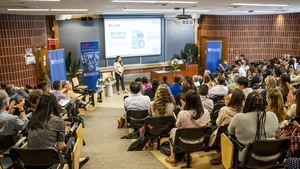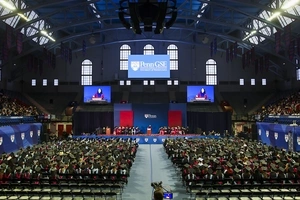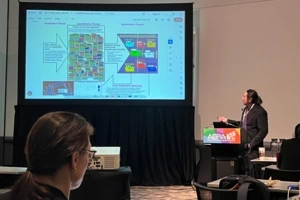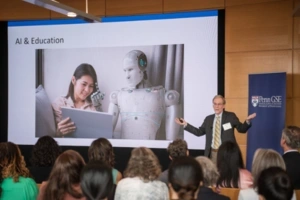In the culminating capstone project, students identify a new opportunity—either for an existing entity or for the creation of a new venture—and implement the skills they have built in the program to launch their own education program, service, or product. Students build a business case, executing experiments that validate or invalidate key hypotheses governing the opportunity. The capstone culminates with a demo day where students pitch their ventures to a distinguished panel of judges.
The exploratory work for the capstone project begins on day one, with discovery-driven planning, ideation, and pitch practice. The second stage includes design thinking, market research, and rapid validation testing using lean methods. Designing learning environments, building venture financial models, and developing marketing plans are key elements in the third stage. In the final stage, students build integrated businesses cases for their education ventures, including financial models and pitch decks. Throughout the 12-month project, students pitch, test, iterate, pivot, and refine venture ideas through meetings with a team of mentors—including ed tech and school entrepreneurs, education intrapreneurs, business leaders, researchers, practitioners, and investors.
Project Components
At the completion of capstone project, students develop a strong business case for a real-world education solution or innovation that allows them to showcase their entrepreneurial skills and knowledge to potential employers, partners, and investors.
Common Topic Areas
- New school designs and programs
- Ed tech teaching and learning solutions
- Curriculum innovations
- New communities of practice
- Ed products and marketplaces
Sample Capstone Projects
New ventures(*) and existing entities that students strengthened through their programmatic work as both entrepreneurs and intrapreneurs:
Center for Entrepreneurial Leadership: Prepares students to change the world through an entrepreneurial mindset—a mindset of curiosity and courageous creativity.
Nomad Minds*: Creates experiences which promote dialogue, understanding, and appreciation among globally interconnected local cultures.
Raise.me: Expands access to higher education, especially among low-income and first generation students, so that every student has a shot at the American Dream.
GYE Zone: Brings real-world challenges to global high school students and prepares them for college and career readiness through youth entrepreneurship education.













































